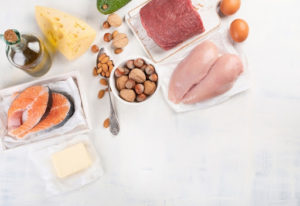
When you eat a low-carb diet, your body doesn’t have enough glucose to use for fuel. To compensate, It will create ketones to use for energy. Part of the body’s process to produce ketones results in isopropanol, which can increase your BAC measured on a breathalyzer. When a police officer measures your BAC at .08% or more, they have probable cause to believe you are under the influence. They can arrest you, even if you say you haven’t been drinking.
Ketosis and DWI Laws in New Mexico
To prosecute you under New Mexico’s DWI laws, the state must prove you were driving under the influence of drugs or alcohol. Therefore, the best way to avoid DWI charges caused by a low-carb diet is to have a urine test to prove that you were in ketosis, the state of producing ketones. If you didn’t have a urine test around the time of your breathalyzer test, it will be more challenging to prove that the breathalyzer test results were from ketosis instead of alcohol. However, there is hope. Our experienced lawyers at the New Mexico Criminal Law Offices understand how low-carb diets affect DUI test results. We can defend you in your DWI case and help you avoid fines, jail time, or having your license suspended.
What Happens to the Body on a Low-Carb Diet?
Many people use low-carb diets to lose weight, treat epilepsy, or manage diabetes. Worldwide, low-carb diets have a market of around $10 billion. However, low-carb diets can have varying physiological effects on the human body. When your body is in ketosis, you may experience some of these common side effects, especially if you’ve recently begun your low-carb diet:
- Headache,
- Fatigue,
- Brain fog,
- Nausea,
- Lack of coordination and poor physical performance, and
- Bad breath or “fruity” breath.
These symptoms can look like the effects of drinking alcohol. In addition, police use field sobriety tests to assess the driver’s balance, coordination, and ability to walk a straight line. If you are exhibiting common symptoms of ketosis during a sobriety test, an officer may observe you as being drunk.
One significant difference between ketosis and alcohol intoxication is that alcohol causes horizontal gaze nystagmus (HGN), while ketosis will not. An officer tests for HGN by placing an object 12-15 inches from your nose and observing if your eye jerks while you attempt to follow the object. If the arresting officer did not perform an HGN test, or did perform one but you want to dispute the results, having an attorney to help investigate could change the outcome of your case.
Low-Carb Diets Effects on DUI Test Results
In addition to causing you to appear drunk because of the physiological effects of ketosis, low-carb diets can affect DUI test results. During ketosis, your body will metabolize fatty acids into three types of ketones: acetone, acetoacetate, and beta-hydroxybutyrate. Normal individuals who are not following a low-carb diet usually have a breath acetone concentration of 0.5 to 2.0 ppm. In ketosis, your breath can measure 2 to 40 ppm of acetone. Police breathalyzers ordinarily do not respond to acetate or acetoacetate, but they do respond to isopropanol. The body produces isopropanol as a by-product of metabolizing acetate, one ketone produced in ketosis.
When you first start producing ketones for fuel, you will likely create more than you can use. The body disposes of the excess ketones through exhalation or urination. Your breath can have a “fruity” smell, also sometimes referred to as “keto breath.” An officer might mistake this for the smell of alcohol. In addition, the chemical composition of isopropanol produced by your body is similar to ethyl alcohol, the kind you drink. Therefore, it is possible for the isopropanol on your breath to cause a positive result on a breathalyzer, leading to a DWI arrest.
On top of causing “keto breath” that an officer can smell, ketones can increase BAC readings. If you did have a drink or two before the police stopped you, the ketones may have contributed to a higher BAC number than if you were not on a low-carb diet. This is important to remember when starting a low-carb diet and drinking alcohol.
How Can a New Mexico Criminal Charges Lawyer Help Me?
If you’ve been arrested for DWI in New Mexico and you are following a low-carb diet, you will likely need help to prove your case. An experienced DUI charges attorney can walk you through the legal process and investigate the incident leading to your arrest. We can determine if the police correctly gave the sobriety test to you in the field. And we can help you find an expert witness to explain how low-carb diets can affect DUI test results to a judge or jury.
Our lawyers at the New Mexico Criminal Law Offices focus exclusively on criminal defense and are knowledgeable about the best arguments to make in a DWI case. When you call our office, we will listen to the facts of your situation and find unique and cutting-edge arguments for your case. Fighting for you using arguments that the court may not have heard before is what we love most.
Allow us to fight for you. Our attorneys have over 22 years of experience in criminal law and have a track record of getting positive results for our clients. We have experience getting DWI cases dismissed or charges dropped, even where the client blew an illegal BAC level. Call us today for a free consultation, and let us help fight for your rights.

